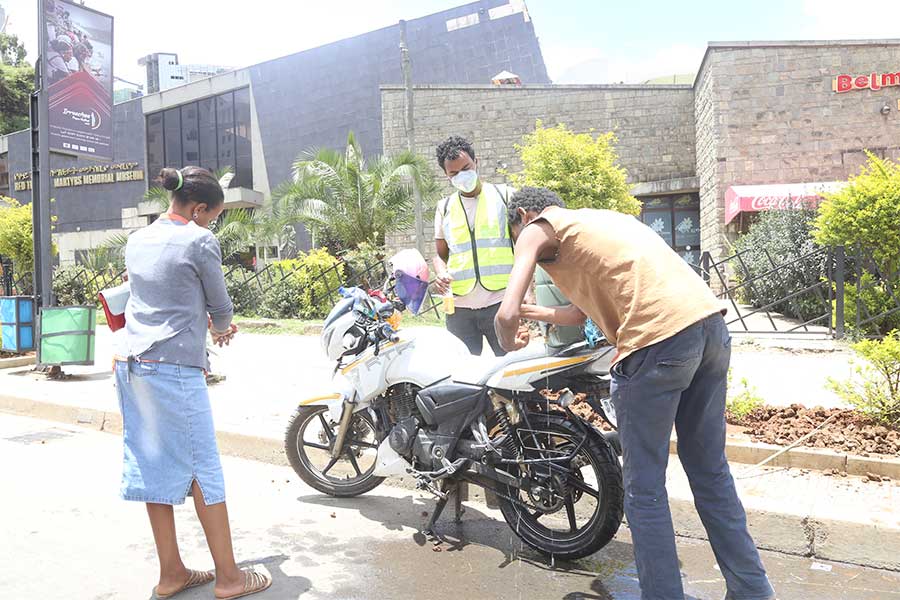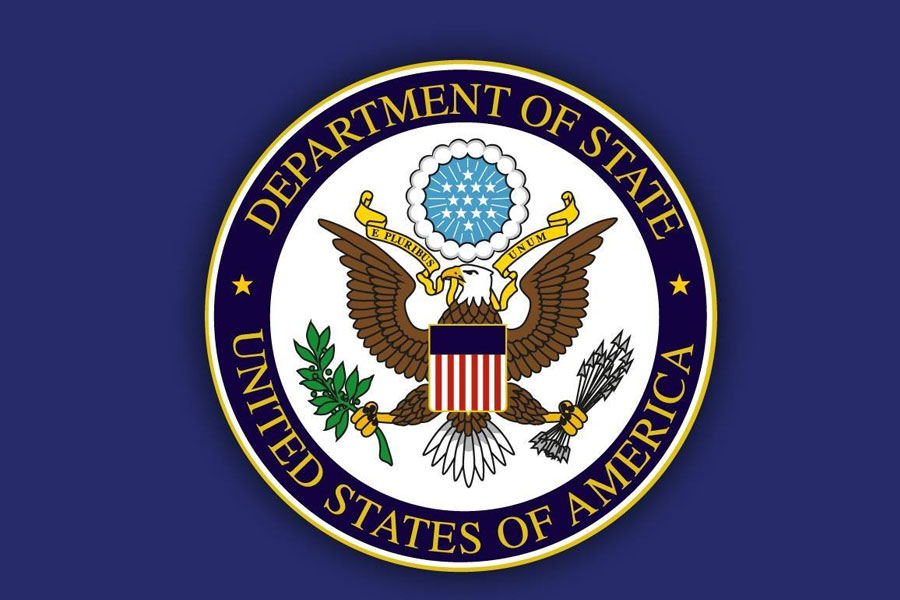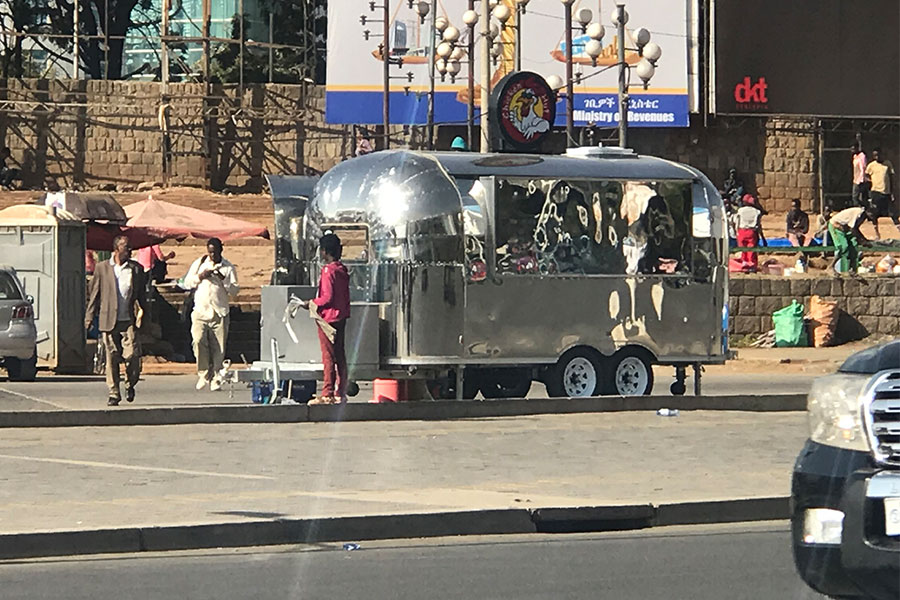
Covid-19 | Apr 08,2020
Sep 18 , 2021
By David Phiri
The food systems in Eastern Africa is in a particularly difficult situation, even by Africa’s standards. Such challenges lead to the conclusion that food systems need a revamp, spanning many disciplines, writes David Phiri, FAO subregional coordinator for Eastern Africa and FAO representative to the African Union (AU) and to the United Nations Economic Commission for Africa (UNECA).
September this year provides a unique opportunity in the quest to transform our food systems for the better, as the United Nations convenes the Food Systems Summit. The Summit is part of the Decade of Action to achieve the Sustainable Development Goals (SDGs) by 2030, leveraging the interconnectedness of food systems to global challenges such as hunger, climate change, poverty and inequality.
During the Summit, major policy recommendations on food security will be advanced to reach global and regional commitments, including the Africa Union’s aspiration to end hunger on the continent by 2025.
For the Summit to be successful, bold actions will need to be taken by UN Member States to deliver progress on all 17 SDGs, each of which relies to some degree on, and contributes to, healthier, more sustainable and equitable food systems. Hence, the voice of this continent in this Summit is crucial in carving the path to an Africa where adequate, nutritious and affordable food is accessible to all.
Food systems, which refers to the activities involved in producing, processing, transporting and consuming food, touch every aspect of our lives. The health of our food systems profoundly affects the health of our bodies and our environment, our economies, and our cultures.
A recent publication by the Food & Agriculture Organization of the United Nations (FAO) [to which the author of this article is subregional coordinator], the African Union Commission and theUnited Nations Economic Commission for Africa (UNECA) highlights the fact that the existing food systems are failing to guarantee food security. People are not guaranteed at all times physical and economic access to sufficient, safe and nutritious food that meets their dietary needs and food preferences for an active and healthy life.
In Africa, the number of hungry people has increased by 50 million since 2014. Now, it stands at 250 million, or nearly one-fifth of the population. The report further indicates that, in addition to hunger, millions of people suffer from widespread micronutrient deficiencies. Overweight and obesity are also emerging as significant health concerns in many African nations.
The food systems in Eastern Africa is in a particularly difficult situation, even by Africa’s standards. The food security situation in the region is worsening, let alone being on track to meet the Sustainable Development Goal 2 and African Union’s targets. Despite having less than 25pc of the African population, East Africa accounts for more than half of the food insecure and undernourished on the continent.
East Africa's gradual deterioration of food security and nutrition is attributed mainly to never-ending conflicts, frequent extreme weather events, economic slowdowns and downturns, and emerging animal and plant pests and diseases, often overlapping. Meanwhile, the COVID-19 has worsened further the food security situation.
The natural environment in the subregion has also faced startling levels of environmental degradation, mainly due to two factors - global climatic changes and human activities - affecting natural resources and land use. Rainfalls are becoming more erratic, temperatures are rising, and drought events are getting more frequent. Land degradation through deforestation and desertification is occurring rapidly, resulting in soil erosion and loss of biodiversity, leading to food shortages.
These challenges lead us to the conclusion that our food systems need a revamp, spanning many disciplines — agriculture, health, climate science, digital science and political science and economics. We all must work together to transform how we produce, process, distribute, consume, and dispose of food. We need to change the existing agri-food system towards nurturing a more sustainable, resilient and effective system that can nourish the growing population.
FAO offers a bold vision to push for the achievements of this goal. FAO’s new Strategic Framework, anchored on the principle that food and agriculture, people’s livelihoods, and preservation of natural resources cannot be addressed in isolation, is to optimise four betters: better production, better nutrition, a better environment and a better life.
Taking a systems-based approach to tackle complex challenges, FAO is working to accelerate innovation, technology, data, governance and institutions to transform today’s agri-food systems for tomorrow’s world where no one goes hungry. It is fostering innovative solutions to produce more with less (to mitigate water scarcity, land degradation, food loss and overuse of inputs, and loss of biodiversity) and to reduce food and agricultural prices, including the cost of nutritious food.
Doing so would help to reduce hunger, putting it back on a downward slope; transform agri-food systems to nourish people, nurture the planet, and build resilient livelihoods and ecosystems; and increase investment in rural transformation and vulnerable populations to reduce inequality, leaving no country and no person behind.
PUBLISHED ON
Sep 18,2021 [ VOL
22 , NO
1116]


Covid-19 | Apr 08,2020

Films Review | May 18,2019

In-Picture | Apr 04,2020

Fortune News | Feb 18,2024

Verbatim | Sep 24,2022

Radar | May 16,2020

Editorial | Dec 07,2019

Radar | Oct 07,2023

Radar | Feb 23,2019

My Opinion | May 29,2021

Photo Gallery | 175075 Views | May 06,2019

Photo Gallery | 165301 Views | Apr 26,2019

Photo Gallery | 155588 Views | Oct 06,2021

My Opinion | 136771 Views | Aug 14,2021

Dec 22 , 2024 . By TIZITA SHEWAFERAW
Charged with transforming colossal state-owned enterprises into modern and competitiv...

Aug 18 , 2024 . By AKSAH ITALO
Although predictable Yonas Zerihun's job in the ride-hailing service is not immune to...

Jul 28 , 2024 . By TIZITA SHEWAFERAW
Unhabitual, perhaps too many, Samuel Gebreyohannes, 38, used to occasionally enjoy a couple of beers at breakfast. However, he recently swit...

Jul 13 , 2024 . By AKSAH ITALO
Investors who rely on tractors, trucks, and field vehicles for commuting, transporting commodities, and f...

Oct 18 , 2025
The political establishment, notably the ruling party and its top brass, has become p...

Oct 11 , 2025
Ladislas Farago, a roving Associated Press (AP) correspondent, arrived in Ethiopia in...

Oct 4 , 2025
Eyob Tekalegn (PhD) had been in the Governor's chair for only weeks when, on Septembe...

Sep 27 , 2025
Four years into an experiment with “shock therapy” in education, the national moo...

Oct 18 , 2025 . By NAHOM AYELE
In a sweeping reform that upends nearly a decade of uniform health insurance contribu...

Oct 18 , 2025 . By BEZAWIT HULUAGER
A bill that could transform the nutritional state sits in a limbo, even as the countr...

Oct 18 , 2025 . By SURAFEL MULUGETA
A long-planned directive to curb carbon emissions from fossil-fuel-powered vehicles h...

Oct 18 , 2025 . By BEZAWIT HULUAGER
Transaction advisors working with companies that hold over a quarter of a billion Bir...